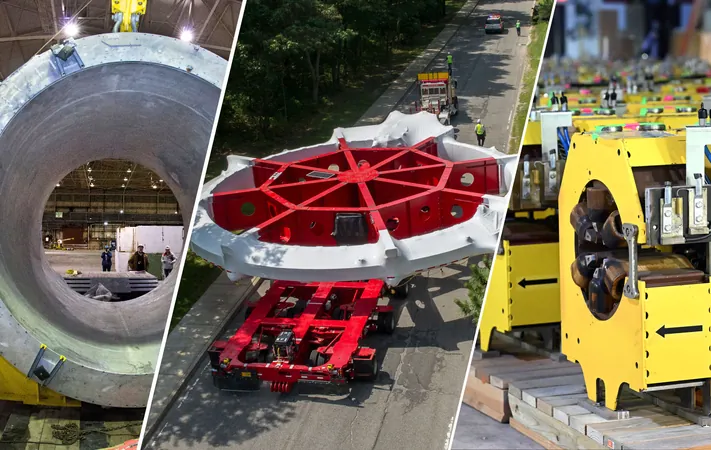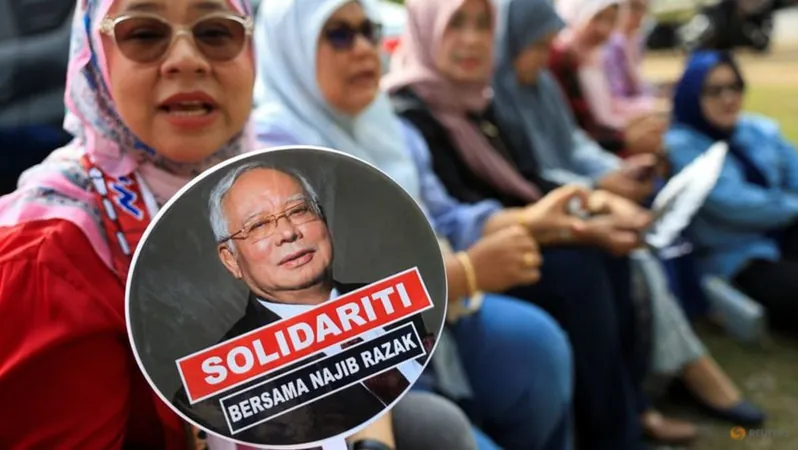
Unlocking Health: How Family and Community Shape Heart Health in Latino Families
2025-07-16
Author: Arjun
Discovering the Heart of the Matter: A Groundbreaking Study
Exciting new research from UC Irvine’s Joe C. Wen School of Population & Public Health sheds light on how Latino families in Orange County, California, tackle cardiovascular disease (CVD) and make heart-healthy choices. This study highlights the pivotal role that community and family support plays in transforming health behaviors.
Innovative Approach to Behavioral Change
Published in Frontiers in Public Health, the study chronicles the innovative Skills-Based Educational Strategies for Reduction of Vascular Events in Orange County (SERVE OC) initiative. Under the leadership of Dr. Bernadette Boden-Albala, a seasoned social epidemiologist, this unique trial has evolved alongside the community it aims to serve.
Breaking Down the Barriers to Better Health
Diverging from traditional clinical trials that often focus on medication or surgical procedures, SERVE OC emphasizes changing health behaviors. Through 14 focus groups with nearly 70 participants—including community members and health professionals—the study uncovered critical social factors influencing cardiovascular health.
Revealing Key Insights
The research identified three core themes affecting heart health: 1. **Knowledge Gaps**: Many participants lacked awareness about heart disease symptoms, risk factors, and nutritional guidelines, heavily influenced by cultural norms and stigmas related to seeking medical help. 2. **Challenges and Supports**: Difficulties such as limited transportation, work commitments, and technology access were barriers to family-centered interventions, while community health workers and culturally relevant activities served as essential support systems. 3. **Community Conditions**: Structural issues like food insecurity and unsafe neighborhoods played a crucial role in health outcomes, with participants calling for affordable health education and safe public spaces.
Innovating Solutions Through Community Engagement
The insights from focus groups led to innovative changes in the program, including culturally tailored cooking classes and multigenerational meal planning sessions, to facilitate healthier dietary choices.
The Power of Family in Health Transformations
The research underscored the importance of familial networks in sustaining long-term health changes. Participants revealed how family members assist with meal preparation and blood pressure monitoring, showcasing the strength of intergenerational connections in bridging health literacy gaps.
Addressing Structural Challenges for Lasting Impact
Key concerns such as unsafe parks and fears related to immigration were also highlighted. To tackle these challenges, the SERVE OC team collaborates with a Community Advisory Board and local stakeholders, exploring sustainable solutions to improve community safety and access to nutritious foods.
Empowering Communities for Healthier Futures
Dr. Boden-Albala emphasizes, "Our methods stem from the lived experiences of those we aim to assist. By amplifying community voices and addressing behavioral and systemic challenges, SERVE OC is redefining public health research to deliver real-world impact."
Conclusion: A Model for Ongoing Health Improvements
This study not only reaffirms the significance of community participation in health interventions but also highlights the vital role of behavioral trials like SERVE OC in fostering long-term health improvements, particularly in communities disproportionately affected by chronic diseases like CVD. Together, we can pave the way for healthier futures!





 Brasil (PT)
Brasil (PT)
 Canada (EN)
Canada (EN)
 Chile (ES)
Chile (ES)
 Česko (CS)
Česko (CS)
 대한민국 (KO)
대한민국 (KO)
 España (ES)
España (ES)
 France (FR)
France (FR)
 Hong Kong (EN)
Hong Kong (EN)
 Italia (IT)
Italia (IT)
 日本 (JA)
日本 (JA)
 Magyarország (HU)
Magyarország (HU)
 Norge (NO)
Norge (NO)
 Polska (PL)
Polska (PL)
 Schweiz (DE)
Schweiz (DE)
 Singapore (EN)
Singapore (EN)
 Sverige (SV)
Sverige (SV)
 Suomi (FI)
Suomi (FI)
 Türkiye (TR)
Türkiye (TR)
 الإمارات العربية المتحدة (AR)
الإمارات العربية المتحدة (AR)